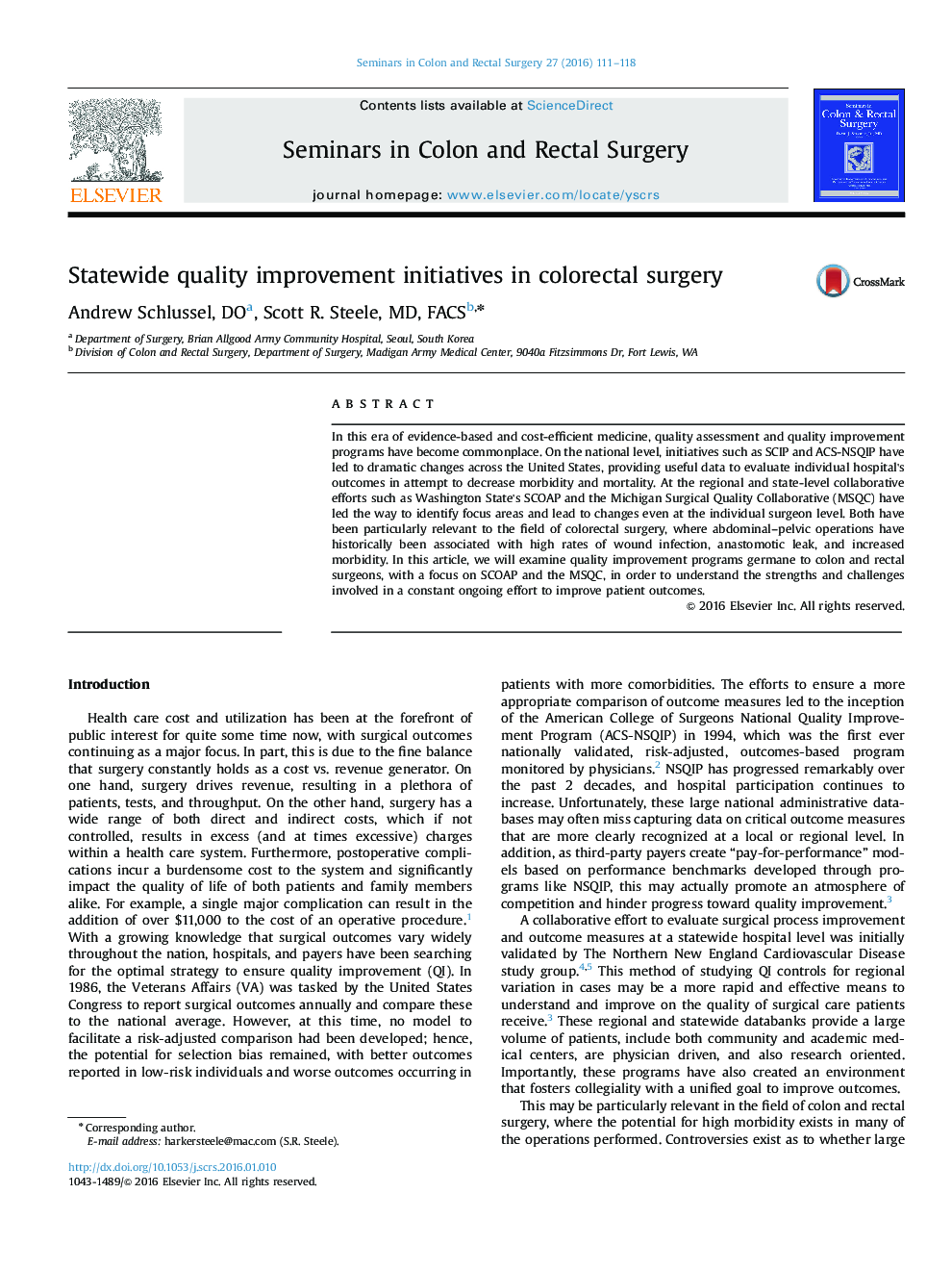| Article ID | Journal | Published Year | Pages | File Type |
|---|---|---|---|---|
| 3319181 | Seminars in Colon and Rectal Surgery | 2016 | 8 Pages |
Abstract
In this era of evidence-based and cost-efficient medicine, quality assessment and quality improvement programs have become commonplace. On the national level, initiatives such as SCIP and ACS-NSQIP have led to dramatic changes across the United States, providing useful data to evaluate individual hospital׳s outcomes in attempt to decrease morbidity and mortality. At the regional and state-level collaborative efforts such as Washington State׳s SCOAP and the Michigan Surgical Quality Collaborative (MSQC) have led the way to identify focus areas and lead to changes even at the individual surgeon level. Both have been particularly relevant to the field of colorectal surgery, where abdominal-pelvic operations have historically been associated with high rates of wound infection, anastomotic leak, and increased morbidity. In this article, we will examine quality improvement programs germane to colon and rectal surgeons, with a focus on SCOAP and the MSQC, in order to understand the strengths and challenges involved in a constant ongoing effort to improve patient outcomes.
Related Topics
Health Sciences
Medicine and Dentistry
Gastroenterology
Authors
Andrew DO, Scott R. MD, FACS,
